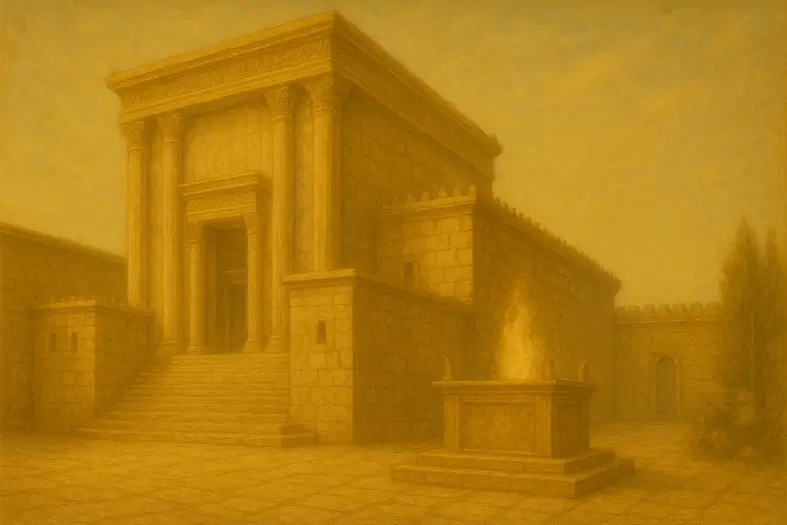


It is forbidden for a kohen with a physical blemish to perform service in the Temple.
This mitzvah disqualifies any kohen with a physical blemish from serving in the Mikdash. The Torah lists many types of blemishes — blindness, lameness, deformities, or other physical impairments — that prevent a kohen from engaging in avodah.
The purpose is not to diminish the kohen’s inherent sanctity but to preserve the appearance of wholeness and dignity in Hashem’s service. Such blemishes can distract the people and diminish the reverence due to the Temple service. A blemished kohen may still partake of sacred foods, reinforcing that his priesthood remains intact.
Rambam codifies the prohibition as essential for preserving awe of the Mikdash. Sefer HaChinuch explains that the Temple was designed to inspire fear and majesty; any visible imperfection in its ministers could weaken that perception. Ramban emphasizes the symbolic perfection demanded by the avodah, which reflects Hashem’s completeness.
Commentary & Classical Explanation:


Represents the concept of spiritual intentionality, purity, and sanctity—set apart for a higher purpose.
Concerns the Beit HaMikdash, korbanot (offerings), and priestly service.
Signifies awe and reverence toward Hashem—living with awareness of His greatness and presence.
Empathy in motion — responding to another’s pain with sensitivity, patience, and understanding. Whereas chesed gives broadly, rachamim responds gently, tailoring care to a person’s emotional or spiritual needs.
Mitzvot that uphold fairness, honesty, and moral responsibility. Justice is kindness structured — ensuring that society reflects G-d’s order through truth, equity, and accountability.
Mitzvot that define and deepen the relationship between a person and their Creator. These include commandments involving belief, prayer, Shabbat, festivals, sacrifices, and personal holiness — expressions of devotion rooted in divine connection.
Mitzvot that govern ethical behavior, kindness, justice, and responsibility in human relationships. These actions build trust, dignity, and peace between people.

Dive into mitzvos, prayer, and Torah study—each section curated to help you learn, reflect, and live with intention. New insights are added regularly, creating an evolving space for spiritual growth.

Explore the 613 mitzvos and uncover the meaning behind each one. Discover practical ways to integrate them into your daily life with insights, sources, and guided reflection.

Learn the structure, depth, and spiritual intent behind Jewish prayer. Dive into morning blessings, Shema, Amidah, and more—with tools to enrich your daily connection.

Each week’s parsha offers timeless wisdom and modern relevance. Explore summaries, key themes, and mitzvah connections to deepen your understanding of the Torah cycle.